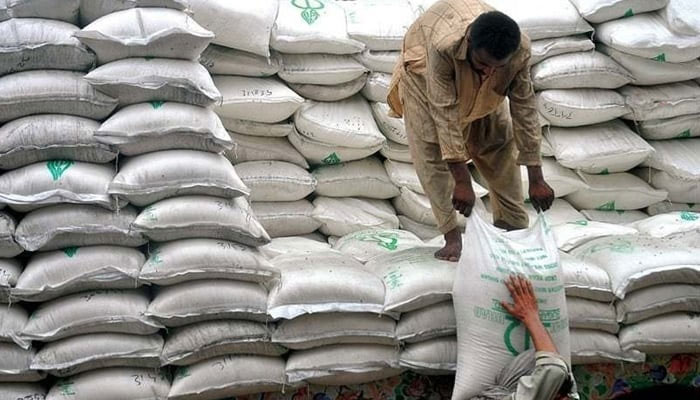Investment opportunities
LAHORE: Investment opportunities in Pakistan are limited to a few families or groups that can be seen in every industrial or service sector. We see no greenfield projects but simply expansions of already existing projects of these groups.
There are 23-24 cement mills in the country ever since the cement sector was privatized. At the time of privatization, the total cement capacity in Pakistan was 9.9 million tons per annum. It has now increased to over 60 million tons. All of the increase was made by the same owners that took over privatized mills.
The only exception was investment by a British Pakistani during the Pervez Musharraf era who was provided better incentives than the then operating mills. Because of limited ownership, the chance of cartels is high in this sector. In fact, the cartel was uncovered over a decade back by the Competition Commission of Pakistan. The CCP decision was challenged in courts and the case is still pending.
Sugar is another sector which is limited to around 78 mills. These mills are mostly owned by political families. Some businessmen from the major business groups have also established sugar mills, after which the politicians maneuvered to impose a ban on establishing new sugar mills.
The business groups became interested in sugar mills as they saw that the sugar sector was facilitated by all governments as the politicians across political divides owned these mills.
Coming to the influential families, we see them owning textile composite mills, power plants, cement mills, corporate dairy farms, shopping malls, and brand outlets spread all over the country.
Some of them own banks, some sugar mills, and some have also ventured into hospitality business and aviation. In fact, three of the top five banks of the country are owned by these business families, they are in real estate, and recently the top two families have ventured into the automobile sector as well, assembling Korean brands in the country. One of the families also owns an insurance company as well.
These families have resources available all the time. They get credit easily and at a very low premium over the central bank policy rates. Making money is not a crime, but denying a level playing field to new entrants is certainly unethical. It has been found that the big businesses, after entering a new sector and securing dominance, try to deny entry to newcomers. Non-availability of viable finance is already a barrier for the new entrants.
The bureaucratic red tape is another barrier. The big businesses, because of their sheer size, manage the bureaucrats comfortably. They also pay rent but not in all stages of public dealings.
Most of the listed companies belong either to these few listed groups or to the government of Pakistan.
It is not in the interest of Pakistan's economy to deny fair opportunities to businesses operating outside the major business groups. The hurdles in the way of smaller businesses must be removed.
The big businesses have done Pakistan a great favor by operating and expanding even during the worst periods of the economy. The recent corporate results are a testament to this fact.
But Pakistan needs at least 100 times more entrepreneurs to take the country ahead. The only hurdle in this regard is bad governance and violation of rules by the bureaucrats that remain unaccountable.
-
 Prince William, Kate Middleton Camp Reacts To Meghan's Friend Remarks On Harry 'secret Olive Branch'
Prince William, Kate Middleton Camp Reacts To Meghan's Friend Remarks On Harry 'secret Olive Branch' -
 Daniel Radcliffe Opens Up About 'The Wizard Of Oz' Offer
Daniel Radcliffe Opens Up About 'The Wizard Of Oz' Offer -
 Channing Tatum Reacts To UK's Action Against Andrew Mountbatten-Windsor
Channing Tatum Reacts To UK's Action Against Andrew Mountbatten-Windsor -
 Brooke Candy Announces Divorce From Kyle England After Seven Years Of Marriage
Brooke Candy Announces Divorce From Kyle England After Seven Years Of Marriage -
 Piers Morgan Makes Meaningful Plea To King Charles After Andrew Arrest
Piers Morgan Makes Meaningful Plea To King Charles After Andrew Arrest -
 Sir Elton John Details Struggle With Loss Of Vision: 'I Can't See'
Sir Elton John Details Struggle With Loss Of Vision: 'I Can't See' -
 Epstein Estate To Pay $35M To Victims In Major Class Action Settlement
Epstein Estate To Pay $35M To Victims In Major Class Action Settlement -
 Virginia Giuffre’s Brother Speaks Directly To King Charles In An Emotional Message About Andrew
Virginia Giuffre’s Brother Speaks Directly To King Charles In An Emotional Message About Andrew -
 Reddit Tests AI-powered Shopping Results In Search
Reddit Tests AI-powered Shopping Results In Search -
 Winter Olympics 2026: Everything To Know About The USA Vs Slovakia Men’s Hockey Game Today
Winter Olympics 2026: Everything To Know About The USA Vs Slovakia Men’s Hockey Game Today -
 'Euphoria' Star Eric Made Deliberate Decision To Go Public With His ALS Diagnosis: 'Life Isn't About Me Anymore'
'Euphoria' Star Eric Made Deliberate Decision To Go Public With His ALS Diagnosis: 'Life Isn't About Me Anymore' -
 Toy Story 5 Trailer Out: Woody And Buzz Faces Digital Age
Toy Story 5 Trailer Out: Woody And Buzz Faces Digital Age -
 Andrew’s Predicament Grows As Royal Lodge Lands In The Middle Of The Epstein Investigation
Andrew’s Predicament Grows As Royal Lodge Lands In The Middle Of The Epstein Investigation -
 Rebecca Gayheart Unveils What Actually Happened When Ex-husband Eric Dane Called Her To Reveal His ALS Diagnosis
Rebecca Gayheart Unveils What Actually Happened When Ex-husband Eric Dane Called Her To Reveal His ALS Diagnosis -
 What We Know About Chris Cornell's Final Hours
What We Know About Chris Cornell's Final Hours -
 Scientists Uncover Surprising Link Between 2.7 Million-year-old Climate Tipping Point & Human Evolution
Scientists Uncover Surprising Link Between 2.7 Million-year-old Climate Tipping Point & Human Evolution




